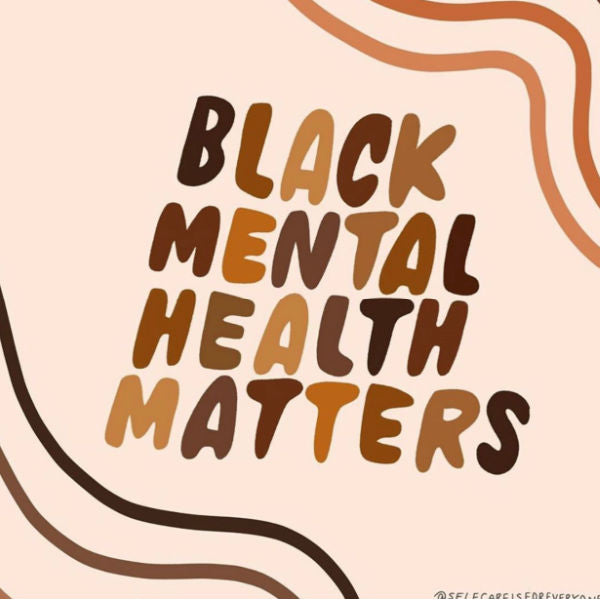Graphic: Self-Care Is For Everyone
In the best of times, African Americans are 10% more likely to grapple with serious psychological distress, according to the Health and Human Services Office of Minority Health. And for teens, it’s worse. Suicide is the third-leading cause of death for Blacks between the ages of 15 and 19, fourth for those ages 20 to 29, and eighth for those between the ages of 30 and 39.
But right now, as protesters of all races come together to share their outrage and disgust over the injustice so prevalent in the lives of day-to-day Black Americans more generally, and the deaths of Black Americans at the hands of police specifically, there has been an ever-more urgent call among psychologists and social scientists to contend with the mental health emergency happening among black people in this country.
When it comes to receiving treatment, about 30% of all African Americans with mental illness receive treatment, compared to the overall U.S. average of 43%. A number of factors are blamed, including socio-economic disparities that affect health, education, access to healthcare and health insurance, provider bias due to lacking cultural competence, preference for finding support from faith communities instead of seeking medical diagnosis, and the stigma surrounding mental health issues.
Writer Jacy Topps, who also happens to be Black and gay and was raised in the South, penned an article for Glamour Magazine about the stigma often attached to therapy in the black community.
“‘Black people don’t do therapy; we go to church,’ is a statement I’d heard countless times in my community,” she writes. “We didn’t discuss mental health so much in my family either. And when the concept of therapy did come up, it was doubly dismissed as a privilege purely for the rich, and something only white folks did.”
Thankfully, organizations like Newburgh’s Loveland Foundation have been created to meet the mental health needs of Black Americans. Loveland was launched in 2018 by Rachel Cargle, an academic, writer, and lecturer, who says her work is devoted to exploring the intersection of race and womanhood.

The Loveland Foundation founder Rachel Cargle. Photo: The Loveland Foundation
Cargle began by raising funds the new-fashioned way: social media. Through her 315K+ following, in less than 24 hours, she raised $10,000. Within months, a quarter million was raised, and The Loveland Foundation was born with the goal of “showing up for communities of color in unique and powerful ways, with a particular focus on Black women and girls.”
The Loveland Foundation tackles multiple issues on multiple fronts, but arguably the most impactful and timely sector it focuses on is therapy. In tandem with Therapy for Black Girls, National Queer & Trans Color Network, Talkspace, and Open Path Collective, Loveland’s Therapy Fund enables grant recipients to access quality therapy across the country. And the Fund aims to not just find good therapy, but appropriate therapy for the girls’ specific needs.

Graphic: The Loveland Foundation
Topps sure could have used an organization like Loveland Foundation in her youth. Thankfully, as an adult, her hand-picked community urged her to seek help after bouts of insomnia and anxiety that lasted more than five years.
“I am a black gay woman in an interracial relationship,” Topps writes in Glamour. “I have survived sexual assault. Knowing I wouldn't want to explore this with a man, I looked for a female therapist and by chance ended up with a woman of color. Our shared experiences as marginalized people made me feel safe, understood, and validated. She understood how the subtle nuances of my oppression impact all aspects of my life, including my mental health.”
If you or someone you know wants to explore options at the Therapy Fund, go here.
And no matter what your race, gender, creed or orientation is: let’s all learn from the challenges 2020 has thrown at us so far, to be kinder, more open, more compassionate, more thoughtful, and work together to create a more resilient and just society.


Leave a comment